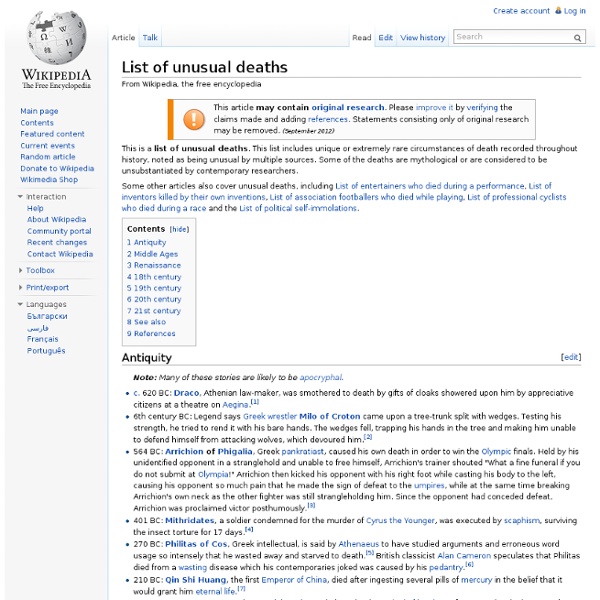Your Cosmic Horoscope
25th August 2014 (Virgo New Moon) Whether it’s your physical health or your mental stability, it’s time to clean up the act a bit and get into some routine that is actually working to keep you healthy. Yet, no conventional practice is going to cut it. The Neptune effect means you must consider the rich alternatives in exercise and healing available to you.
11 Books You Should Read If You’re A Woman In Your 20s
According to Love Twenty, women in their twenties are supposed to read diet books and novels about shopping. I disagree. Here are my suggestions for novels you should read if you’re a woman in your twenties. 1.
Biocentrism Explains Why There’s No Time and No Death
Okay, I admit it. They had me at “You won’t actually die.” I want to believe. Dr.
New analysis suggests most Milgram participants realised the “obedience experiments” were not really dangerous
By Christian Jarrett Stanley Milgram’s experiments in the 1960s – in which ordinary volunteers followed a scientist’s instruction to give what they apparently thought was a deadly electric shock to another participant – have been taken by many to show our alarming propensity for blind obedience. Milgram’s own interpretation, his “agentic state theory”, was that we readily give up our own sense of responsibility when following instructions from an authority figure.
Great Fire of London
Detail of the Great Fire of London by an unknown painter, depicting the fire as it would have appeared on the evening of Tuesday, 4 September 1666 from a boat in the vicinity of Tower Wharf. The Tower of London is on the right and London Bridge on the left, with St. Paul's Cathedral in the distance, surrounded by the tallest flames. The Great Fire of London was a major conflagration that swept through the central parts of the English city of London, from Sunday, 2 September to Wednesday, 5 September 1666.[1] The fire gutted the medieval City of London inside the old Roman city wall.
The Ego and the Universe: Alan Watts on Becoming Who You Really Are
by Maria Popova The cause of and cure for the illusion of separateness that keeps us from embracing the richness of life. During the 1950s and 1960s, British philosopher and writer Alan Watts began popularizing Eastern philosophy in the West, offering a wholly different perspective on inner wholeness in the age of anxiety and what it really means to live a life of purpose. We owe much of today’s mainstream adoption of practices like yoga and meditation to Watts’s influence. Alan Watts, early 1970s (Image courtesy of Everett Collection)
Ann VanderMeer: The 13 Of The Weirdest Short Stories Ever Written
The Weird: A Compendium of Strange and Dark Stories [Tor, $29.99] contains 110 tales from the past 100 years of weird fiction collected in a single volume of over 750,000 words. Over 20 nationalities are represented and seven new translations were commissioned for the book. This is the largest collection of weird fiction ever housed between the covers of one volume.
Simon Critchley on the History of Death (transcript)
Transcript Question: How do contemporary societies conceive of death? Critchley: Every culture has had rituals around death, all right. It’s a constant feature of what it means to be human.
Year Without a Summer
The year 1816 is known as the Year Without a Summer (also known as the Poverty Year, The Summer that Never Was, Year There Was No Summer, and Eighteen Hundred and Froze to Death[1]), because of severe summer climate abnormalities that caused average global temperatures to decrease by 0.4–0.7 °C (0.7–1.3 °F),.[2] This resulted in major food shortages across the Northern Hemisphere.[3][4] Evidence suggests that the anomaly was caused by a combination of a historic low in solar activity with a volcanic winter event, the latter caused by a succession of major volcanic eruptions capped by the 1815 eruption of Mount Tambora, in the Dutch East Indies (Indonesia), the largest known eruption in over 1,300 years. The Little Ice Age, then in its concluding decades, may also have been a factor.[attribution needed] Description[edit] The Year Without a Summer was an agricultural disaster.
All About Orbs
Have you ever seen an orb and wondered what it meant? Are you aware that different colored orbs have various meanings? The following is research material that I compiled together on the subject of orbs: Orb Chart:
Character Chart for Fiction Writers - EpiGuide.com
If you're a fiction writer -- whether you're working on a novel, short story, screenplay, television series, play, web series, webserial, or blog-based fiction -- your characters should come alive for your reader or audience. The highly detailed chart below will help writers develop fictional characters who are believable, captivating, and unique. Print this page to complete the form for each main character you create. IMPORTANT: Note that all fields are optional and should be used simply as a guide; character charts should inspire you to think about your character in new ways, rather than constrain your writing. Fill in only as much info as you choose. Have fun getting to know your character!
Alan Watts on Death, in a Beautiful Animated Short Film
by Maria Popova “Think about that for a while — it’s kind of a weird feeling when you really think about it…” Philosopher and writer Alan Watts (1915-1973) is best-known for authoring the cult-classic The Way of Zen and popularizing Eastern philosophy in the West alongside John Cage.




It takes originality even to be slightly unoriginal. by bizarre Apr 21
Ha, I stole this from this reddit. And to think I thought I was being only slightly unoriginal. by nicsuper7 Apr 19
This is a StumbleUpon's 5 star rated list of the most unusual deaths in the history of mankind. Presented by the Wikipedia. by bizarre Mar 25